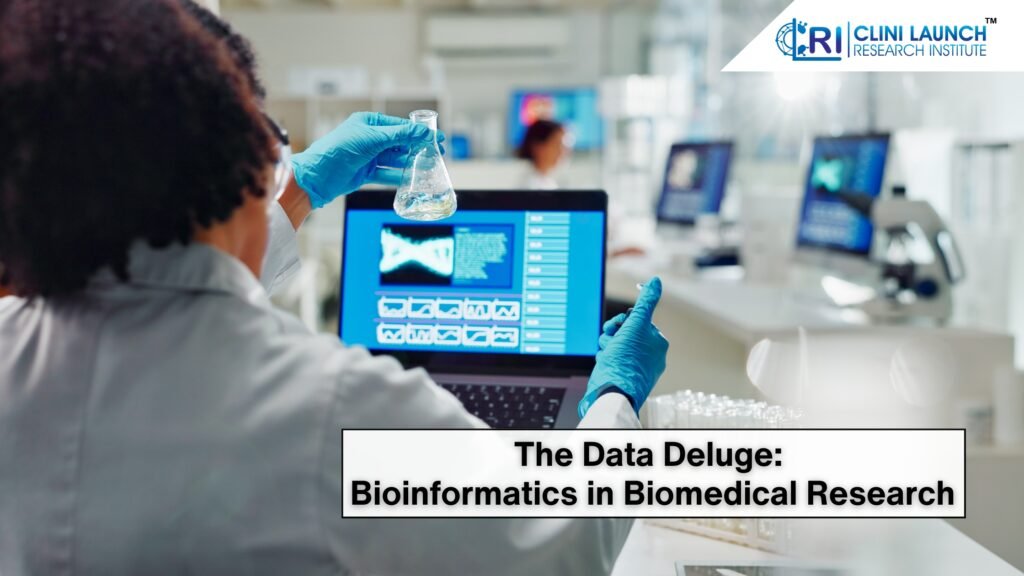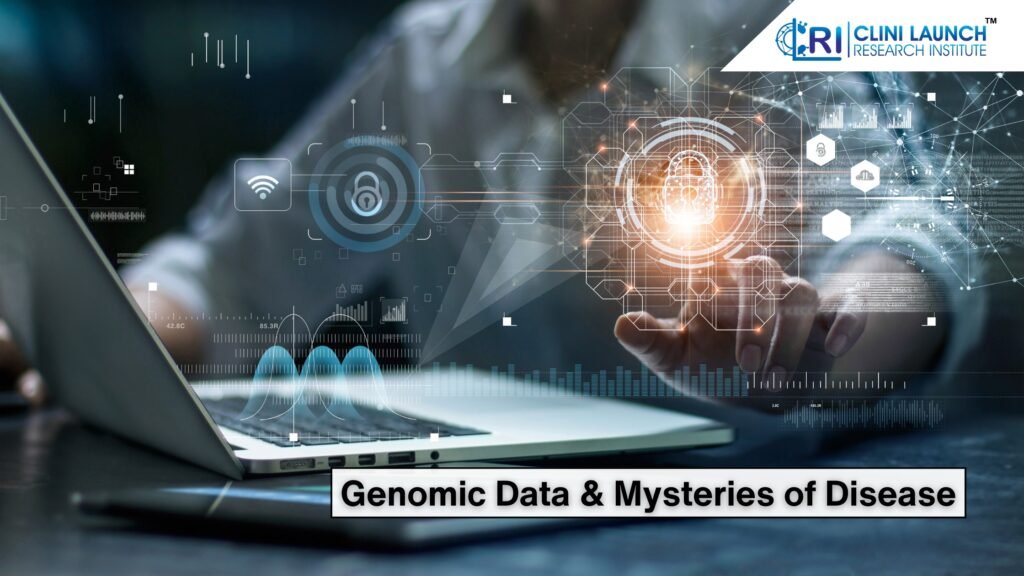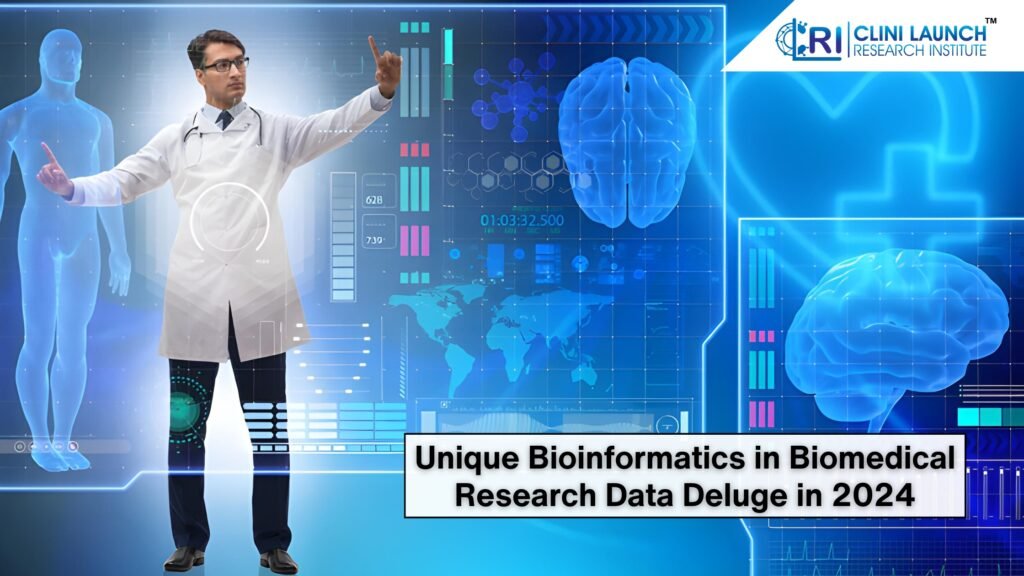Bioinformatics has emerged as a cornerstone in the landscape of modern biomedical research. This interdisciplinary field, blending biology, computer science, and statistics, is revolutionizing how we understand and address complex health challenges. By harnessing the power of computational analysis and advanced algorithms, researchers can enable bioinformatics in biomedical research to extract meaningful insights from vast volumes of genomic data, propelling breakthroughs in drug discovery, personalized medicine, and disease prevention.
The Data Deluge: Bioinformatics in Biomedical Research

The advent of high-throughput technologies has led to exponential growth in biological data generation. From sequencing genomes to analyzing protein structures, researchers are inundated with information. This data deluge presents both opportunities and challenges. Bioinformatics steps in to provide the tools and techniques necessary to manage, analyze, and interpret these complex datasets. By developing sophisticated algorithms and databases, bioinformaticians can efficiently store, retrieve, and compare genomic, proteomic, and other biological information.
Accelerating Drug Discovery
One of the most impactful applications of bioinformatics in biomedical research is drug discovery. Traditionally, drug development has been a lengthy and expensive process. However, bioinformatics is transforming this paradigm. By analyzing vast molecular databases, researchers can identify potential drug targets with unprecedented speed and accuracy. Computational modeling techniques allow the virtual screening of millions of compounds to predict their binding affinity to target proteins, significantly reducing the time and cost associated with experimental validation. Moreover, bioinformatics plays a crucial role in understanding drug metabolism, pharmacokinetics, and pharmacodynamics, optimizing drug efficacy and safety.
Precision Medicine
Personalized medicine aims to tailor medical treatments to individual patients based on their genetic makeup and other molecular characteristics. Bioinformatics is at the heart of this emerging field. By analyzing a patient’s genomic profile, researchers can identify genetic variations associated with disease susceptibility, drug response, and treatment outcomes. This information can be used to develop personalized treatment plans, optimize drug dosages, and minimize adverse effects. Furthermore, bioinformatics helps to identify biomarkers that can predict disease progression and response to therapy, enabling early intervention and improved patient care.
Genomic Data & Mysteries of Disease

Bioinformatics is instrumental in unraveling the complex mechanisms underlying diseases. By integrating genomic, proteomic, and clinical data, researchers can identify genetic and molecular pathways involved in disease pathogenesis. This knowledge is essential for developing novel therapeutic strategies and diagnostic tools. For example, bioinformatics-driven studies have led to the identification of genetic mutations associated with various cancers, paving the way for targeted therapies. Additionally, by analyzing large-scale genomic datasets, researchers can uncover the genetic basis of complex diseases, such as diabetes, heart disease, and Alzheimer’s disease, providing insights into disease etiology and potential therapeutic targets.
Challenges and Future Directions

While bioinformatics has made significant strides, several challenges remain. The increasing complexity of biological data requires the development of more sophisticated computational tools and algorithms. Additionally, there is a need for standardized data formats and ontologies to facilitate data integration and interoperability. Moreover, ethical considerations related to data privacy and security must be addressed to ensure responsible use of genomic information.
Despite these challenges, the future of bioinformatics in biomedical research is promising. Advancements in artificial intelligence and machine learning are poised to revolutionize data analysis and interpretation. The integration of bioinformatics with other emerging technologies, such as genomics, proteomics, and metabolomics, will create unprecedented opportunities for scientific discovery and clinical translation. As the field continues to evolve, bioinformatics will undoubtedly play a pivotal role in shaping the future of healthcare.
Conclusion
To sum up, bioinformatics has emerged as an indispensable tool for modern biomedical research. By harnessing the power of computational analysis, bioinformatics enables researchers to extract valuable insights from complex biological data, accelerating drug discovery, driving personalized medicine, and advancing our understanding of disease. As technology continues to advance, the integration of bioinformatics with other disciplines will unlock new frontiers in healthcare and improve human health.
CliniLaunch, known as the best bioinformatics training institute in India, is a major market player in the healthcare industry. It provides a PG Diploma in Bioinformatics program for students who are eligible for the course. The candidates who are eligible for this course are those with a background in Biotechnology, Biomedical Science, Bioengineering, Medical Laboratory Technician, Computer Science, Data Science, Chemistry Students, Molecular Biology, Botany Students, Microbiology Students, BSc. and MSc. For more details, visit www.clinilaunchresearch.in.
Content Writer | Content Marketer | Ex-Academic Research Associate






Thanks for sharing. I read many of your blog posts, cool, your blog is very good.